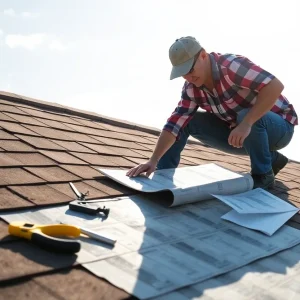Challenges Mount for South Carolina’s Juvenile Justice System
In Columbia, South Carolina, a startling new report has put the spotlight on the ongoing issues plaguing the state’s Department of Juvenile Justice (DJJ). Released by the Legislative Audit Council, which operates independently under the state General Assembly, the findings reveal that this vital agency continues to struggle following several tough audits in recent years. This latest report serves as a follow-up to a 2021 audit that raised alarms regarding the safety and well-being of the children and staff within the DJJ facilities.
Slow Progress in Implementing Changes
Despite a mix-change in leadership, things have not improved as much as hoped. Out of 101 recommendations made in 2021, the agency has only managed to implement slightly more than half, leaving a significant path of improvements still untraveled. With a mandate to house and rehabilitate juvenile offenders up to 18 years old, the DJJ now finds itself battling against a range of persistent problems, including underfunding, overcrowding, and a critical shortage of staff.
The situation has worsened even further with the introduction of the Raise the Age law, which has heightened pressures on the agency by increasing the number of offenders they are responsible for. State Senator Tameika Isaac Devine from Richland expressed concern, stating that the lack of additional funding following the law’s passage has pushed the DJJ “to its breaking point.”
Staff Shortages and Vacancies
The audit findings are deeply troubling. In a surprisingly short timeframe—between October 2023 and February 2024—the vacancy rate for juvenile corrections officers has soared from 15% to 39%. Of the 118 officers trained and brought on board in 2023, a staggering 79% departed by August, with an average tenure of only three months. This high turnover rate raises serious concerns about continuity and oversight in the facilities.
Compounding the staff shortage issues is a disturbing trend where juveniles often go without necessary medical care due to a lack of transportation solutions—an issue that has not been resolved since the previous audit. Moreover, the agency has struggled to manage its finances effectively, with ongoing problems in paying bills on time, leading some medical providers to stop treating juvenile inmates altogether. Auditors reported that key policies remained stuck in limbo, further aggravating the challenges faced by DJJ.
Policy Changes in Limbo
Notably, the agency’s transition away from using Performance Based Standards—an important national data collection program—has left them without any clear data collection process. A multitude of key policies regarding mental health treatments and staff protocols—many tied to a Justice Department settlement—are also undergoing revisions, adding to the uncertainty surrounding DJJ’s operational standards. Out of nine security-related policies, only five have been finalized, creating risks for both staff and juvenile detainees alike. Senator Devine warns, “We could have a large disaster on our hands if we don’t address these issues.”
A Tragic History of Incidents
The DJJ has been grappling with several high-profile incidents since the last audit. A tragic example includes a 13-year-old girl who infamously managed to bring a loaded firearm into the facility, resulting in suspensions for several staff members. Furthermore, a 16-year-old inmate tragically lost his life after an attempted suicide, and earlier this year, a juvenile corrections officer faced criminal charges for an alleged assault on an inmate. Appalling conditions have left children sleeping on pallets on the floor or housed alongside offenders charged with serious crimes, raising significant concerns about safety and proper care.
Hope for Reform
Amid the bleak findings, there is a flicker of hope. The DJJ has invested over $7 million into enhancing security measures, including the installation of 1,197 cameras across five facilities. As the agency continues to strive for improvement, Senator Devine has proposed the Juvenile Justice Reform Act, a bill aimed at addressing the array of challenges facing DJJ. She hopes to garner bipartisan support to secure much-needed funding and tackle issues related to overcrowding by easing the incarceration of juveniles charged with less severe offenses like truancy. “If you were an adult, that would not be a crime,” she emphasized.
As the report unfolds, South Carolina stands at a critical juncture. It is clear that timely intervention is necessary to prevent further deterioration and to embrace systemic reform to protect the future of its most vulnerable population—its youth.









